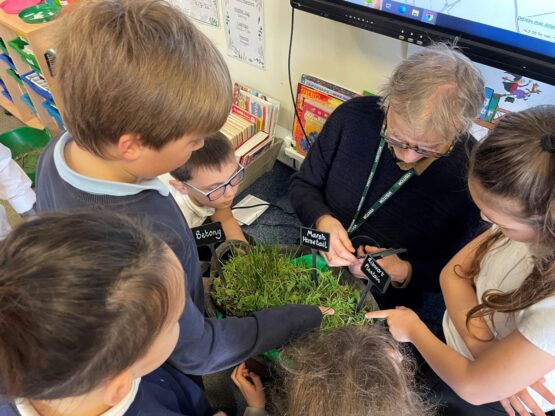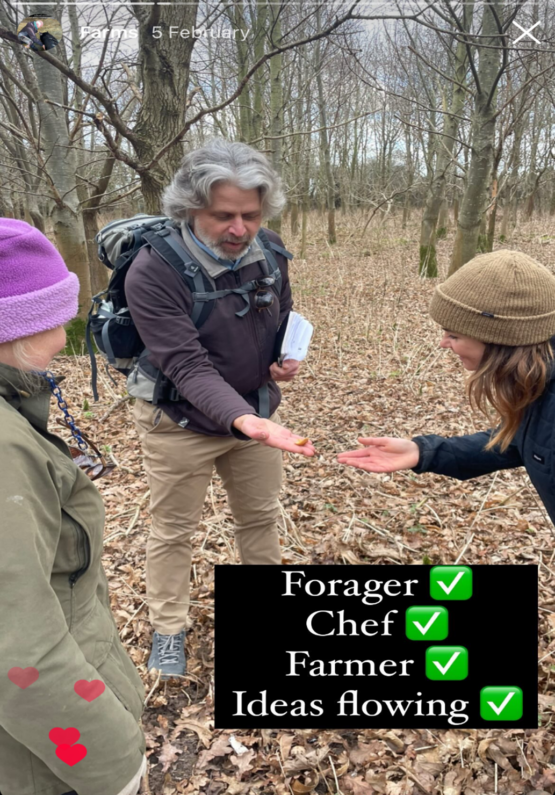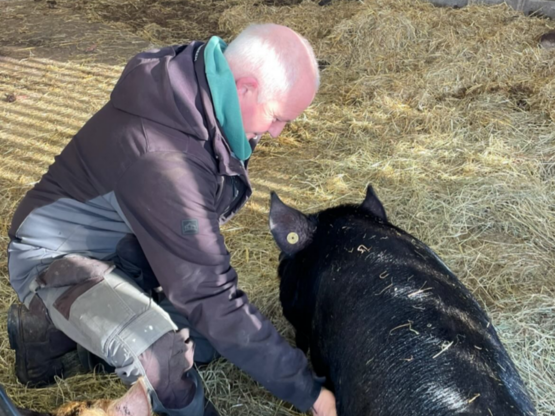Farming in Protected Landscapes Case Study:
Weaving Farms, Land, People & Planet

For Years 3 and 4 of the Farming in Protected Landscapes programme, £51,079 was awarded to Natural Habitat to collaborate with farmer members of the Blyth Valley Farm Cluster.
The aim of the project was to support them in establishing and developing close links with local primary schools and the wider public, via farmer training, resource creation, in school and on farm sessions.
Overview
This project will strengthen relationships between the public – consumers – and farm businesses; to build understanding among children, their parents and teachers of how food is produced. It is fostering an improved knowledge of nature, land management and agriculture in the context of the wider environment for the school children involved.
Although they live in villages and small towns within the Suffolk & Essex Coast and Heaths National Landscape, many have not had the opportunity to get out onto farms and learn about how the land is managed. Through working with artists, historians, food growers and buyers, this project is encouraging an exchange of knowledge, cultural views and experiences between groups with interests in the countryside.

What has been done so far?
This project has run five CEVAS training courses (the Countryside Educational Visits Accreditation Scheme) offering opportunities for certified accreditation, for farmers as well as creating new opportunities for multi-disciplinary collaboration and skill sharing via Natural Habitat’s developmental training.
This has enabled farmers and aligned experts to share ideas and skills to improve land accessibility and understanding, and set them up to plan the sessions.
The project has also run a Community Engagement’ training session, at a Blyth Valley Farmer cluster meetings, alongside Suffolk Wildlife Trust’s facilitator.
The seven farms involved gained the skills to create school sessions on their farms so that the visits can be planned to be safe, accessible and as informative as possible.
The sessions are being delivered in school by Natural Habitat’s facilitators and farmers, through the days where children visit the farm, and at follow-up sessions where the learning is explained to parents and the wider community at evening events in school.
The schools the project is working with are all within the Asset Academy, a 14-school Trust; Wenhaston Primary School, Edgar Sewter Primary School and Ilketshall St Lawrence Primary School
The resources created will be shared over the whole Trust. The project will also work with wider community groups in it’s second year.

What has been done so far?
Now in its second year, feedback from the schools has been fantastic. Here are some quotes from pupils and teachers following their farm visits:
“We found out that Union Farm used to be a workhouse and got to see the field where the Roman things came from that Simon showed us at school. It was so cool to think of all the people that have been here and the things that have happened”
(Pupil)
“Thank you so much for yesterday - they all had such a great time and didn't stop talking about it when they came home. And what amazing luck that a calf had just been born. That was really special for them to experience”
(Teacher)
“Today I witnessed children, who when we visited them in their classroom, were hectic and distracted, but today were calm and fully engaged. Getting outside and on the farm was such a joy - one boy in particular who in-school found it so tricky to concentrate and engage, really came into his own - he was able to shine, sharing his knowledge of some plants and very obviously loved being able to explore all that Broad Oak offered, especially the animals.”
(Facilitator)
A film is being produced as part of the project to provide a snapshot of the Blyth Valley farming industry and landscape in the 2020’s and give a platform for diverse local voices. You can find out more at www.naturalhabitat.org.uk.
